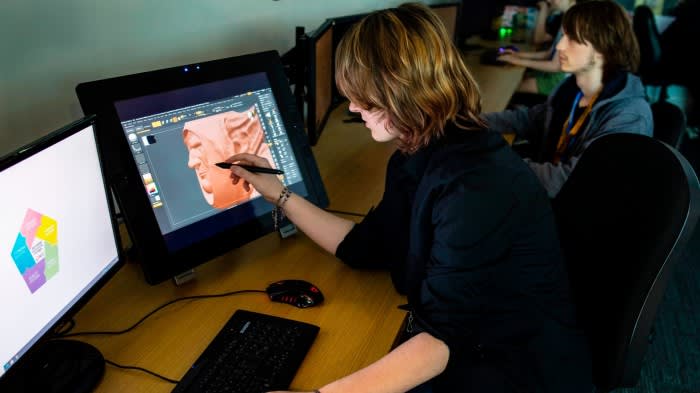Stay informed with free updates
Simply sign up to the Media myFT Digest — delivered directly to your inbox.
British media executives, artists and designers have called on the next government to “urgently invest” in the sector or risk the UK’s reputation as a creative industries “superpower”.
The warning came in an open letter to politicians signed by leading industry figures, including veteran media executive Dawn Airey, broadcaster and historian David Olusoga and designer Thomas Heatherwick, published on Tuesday.
“On the eve of a general election, it is time for a national reset — relaunching our national brand and reinvigorating our international reputation,” it said, adding: “But unless we urgently invest in the creative industries, widening access and shaking off complacency around the UK’s creative superpower status, we put that reputation at risk.”
The intervention comes as the main political parties are pulling together their manifestos with Prime Minister Rishi Sunak expected to call an election later this year.
The letter was published alongside a manifesto, drawn up by Creative UK, the national network and financier for the industry, setting out a range of recommendations to help support the industry, which it said was worth £124.6bn in “gross value added” annually.
The proposals include plans for a new post-Brexit touring agreement with the EU to allow enhanced freedom of movement for UK artists and protection for copyright against theft by AI companies.
The manifesto called for “radical new action” to address key challenges, such as the need for more investment in creative R&D and reversing the decline in access to creative education as well as a revised approach to trade and exports after Brexit.
The initiative is backed by organisations including the Royal College of Art, Edinburgh Festival Fringe, Royal Shakespeare Company, the Advertising Association, the National Theatre and the British Phonographic Industry.
Caroline Norbury, chief executive of Creative UK, said it was a “decisive moment” for the UK’s cultural and creative industries.
“The sector is driving real growth for the economy, while creating jobs and meaningful work at an extraordinary pace. However, creatives are also struggling with issues such as widespread cuts to creative education, reducing levels of funding and financial models that are no longer fit for purpose, as well as difficult trading conditions.”
The UK is home to several large film studios, such as Elstree and Pinewood, and has a leading global role in art, architecture, fashion and video games design.
But cutbacks to the commissioning budgets of large US streamers and UK public sector broadcasters has increased the pressure on TV and film production, while Brexit has made it harder for British artists to tour in the EU.
Last month, the government announced more than £1bn in tax relief for creative industries in the Budget to encourage film production and boost orchestras, theatres, museums and galleries. The government has previously set out an ambition to grow the sector by £50bn by 2030 and create 1mn jobs.
New research published with the letter shows that more than 60 per cent of adults believe that the UK’s creative influence in the world has either declined or stayed the same. The majority of respondents believed creative opportunities for working-class households have declined in the last 10 years.


